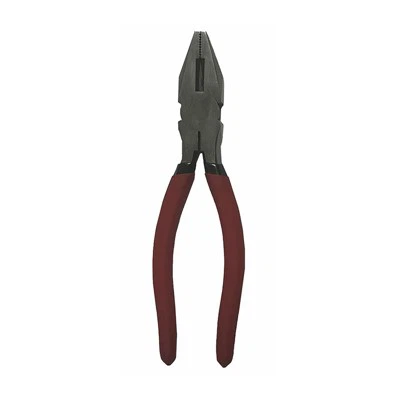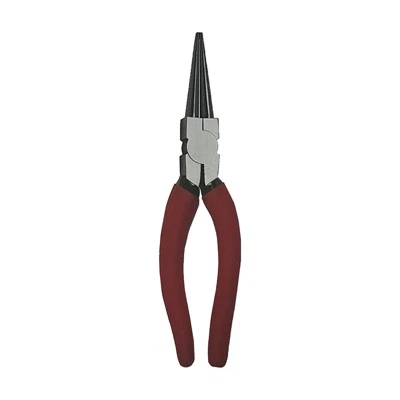Hey there! As a supplier of adjustable water pump pliers, I often get asked whether these trusty tools are suitable for use in a chemical - filled environment. It's a great question, and one that I'm going to dive into right here.
First off, let's talk a bit about adjustable water pump pliers. They're incredibly versatile. You can use them for gripping, turning, and even loosening or tightening nuts and bolts. They've got adjustable jaws, which means you can adapt them to different sizes of objects. That's why they're so popular in a whole bunch of industries, from plumbing to automotive repair.
But when it comes to a chemical - filled environment, things get a bit more complicated. Chemicals can be pretty harsh on tools. Different chemicals have different properties, and they can react with the materials that the pliers are made of in various ways.
Most adjustable water pump pliers are made of steel. Steel is strong and durable, but it's also susceptible to corrosion. In a chemical - filled environment, especially one with acids, alkalis, or strong oxidizing agents, the steel on the pliers can start to rust or corrode. Rust not only makes the pliers look bad, but it can also weaken the structure of the tool. If the jaws start to corrode, they might not grip as well, and that can be a real safety hazard.


For example, if you're working in a chemical plant where there are sulfuric acid fumes in the air, the acid can react with the iron in the steel to form iron sulfate. This compound is brittle and can flake off, leaving the underlying steel exposed to further corrosion. Over time, the pliers can become so damaged that they're no longer usable.
However, it's not all doom and gloom. There are some steps that can be taken to make adjustable water pump pliers more suitable for a chemical - filled environment. One option is to use pliers with a special coating. Some manufacturers offer pliers that are coated with materials like nickel or chrome. These coatings act as a barrier between the steel and the chemicals, protecting the underlying metal from corrosion.
Another thing to consider is the frequency of use. If the pliers are only going to be used occasionally in a chemical - filled environment, the risk of corrosion might be lower. But if they're going to be used constantly, it's crucial to take extra precautions. You could keep a set of dedicated pliers for the chemical - filled area and make sure to clean them thoroughly after each use.
Now, let's talk about some other types of pliers that might also be relevant in a chemical - filled environment. There are American Type Round Nose Plier, which are great for bending and shaping wire. They have a rounded tip that allows for precise work. And then there are American Type Bent Nose Pliers, which are useful for reaching into tight spaces. Their bent shape gives you better access in confined areas. Circlip Pliers are also important. They're used for installing and removing circlips, which are common in many mechanical and chemical - related systems.
When choosing pliers for a chemical - filled environment, it's not just about the type of pliers but also about the quality. High - quality pliers are more likely to have better coatings and stronger materials that can withstand the chemical onslaught.
So, are adjustable water pump pliers suitable for use in a chemical - filled environment? The answer is, it depends. If you take the right precautions, like using coated pliers and proper maintenance, they can be used. But it's important to assess the specific chemicals in the environment and the frequency of use.
If you're in the market for adjustable water pump pliers or any of the other types of pliers I mentioned, I'd love to have a chat with you. Whether you need them for a chemical - filled environment or any other application, I can help you find the right tools for the job. Don't hesitate to reach out and start a conversation about your procurement needs.
References
- "Hand Tools in Industrial Environments: A Guide to Selection and Use", Industrial Tool Association, 2020
- "Corrosion of Metals in Chemical Settings", Journal of Chemical Engineering, 2019





